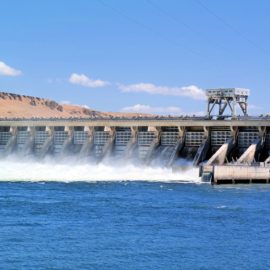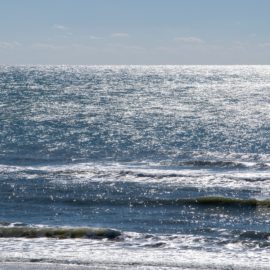
Show the republican who becomes governor that there is support for diversions.
An influential coalition that advocates for coastal restoration is seeking to show candidates in this year’s election for Louisiana governor that the public broadly supports large-scale sediment diversions, pointing to results from a poll conducted on its behalf to help make its case. Results released Tuesday from the poll conducted for the Restore the Mississippi River Delta coalition indicate strong backing for diversions and deep concern over coastal land loss. The coalition says support for diversions was solid even when poll respondents were informed of arguments against such projects. State officials say two major Mississippi River diversion projects being planned are vital to slowing the land loss steadily peeling away at Louisiana’s coast and have presented scientific data to back them. But they are opposed by commercial fishers, who say their livelihoods will be ruined by the influx of freshwater and sediment into areas where they grow oysters and trawl for shrimp. The poll indicated 73% of respondents support diversions to rebuild coastal land, up from 68% in 2021. When further information was provided, the share increased to 80%. Support was similar across political parties. After being read negative opinions on the diversions, support held at 66%, according to the poll. When both sides were presented, support rose back to 74%.
nola.com
There was a favorable response for law makers who protect the land.
Beyond diversions, the poll showed widespread concern with coastal land loss and climate change’s effects in Louisiana. Some 84% said they had a favorable opinion of “lawmakers who support strong action to protect and restore Louisiana’s coastal areas and wetlands.” Asked how soon coastal land loss will directly impact their families, 54% of respondents said within 10 years, and 65% said within 20 years. Those numbers rose slightly among respondents in coastal areas of the state. Perhaps surprisingly, given the influence of the energy industry in Louisiana and voters’ recent preference for candidates such as Donald Trump, a high number – 69% – agreed that climate change is already having a serious impact on the state. That number has risen over the past couple years and reflects changes in opinion among Republicans and independents, said Andrew Baumann of Global Strategy Group, which conducted the poll. The poll involved a phone survey of more than 1,400 Louisiana registered voters between March 7 and 14, with an emphasis on coastal areas. The margin of error was 3.5% for the overall sample and 3% for the coastal sample.
Tell the candidates where the citizens stand.
Asked about concern that a future governor will be less supportive of sediment diversions than Gov. John Bel Edwards’ administration, coalition campaign director Simone Maloz said it was important to show where the public stands and present scientific facts. “We wanted to make sure that we understood where voters were in this election year,” she said. “We believe, and I think many, many people do also believe as confirmed by this polling, that there’s tremendous support for this … This is bipartisan, nonpartisan support for the actions that Louisiana is taking as we face this risky climate future.” The Mid-Barataria Sediment Diversion is set to begin construction later this year at a total cost of nearly $3 billion, paid for with settlement funds linked to the 2010 BP Deepwater Horizon spill. The project will be capable of funneling up to 75,000 cubic feet per second from the river into Barataria Basin, though it will operate at various capacities throughout the year. It is projected to build around 21 square miles of land by 2070 by essentially turning back time and mimicking the forces that formed south Louisiana in the first place. The Mid-Breton diversion, a similar project though on a slightly smaller scale, is being planned for the opposite side of the river in the years ahead. State officials point to the 2,000 square miles of land Louisiana has lost in less than a century and say diversions can help restore and maintain a sustainable coast.
There is skepticism in top republican officers.
Lt. Gov. Billy Nungesser, the former president of Plaquemines Parish, has been one of the most outspoken opponents of the plans. Commercial fishers say the state should stick to marsh building by dredging sediment instead of risking their livelihoods with such major changes in salinity. State officials say marsh-building projects using dredged sediment will also continue in addition to the diversions. They point out, however, that marsh projects erode like the rest of the coast, while diversions will help nourish wetlands over time. The state has set aside $378 million for mitigation for those who will be affected by Mid-Barataria, including commercial fishers. The coalition includes the Environmental Defense Fund, National Audubon Society, the National Wildlife Federation, Coalition to Restore Coastal Louisiana and Pontchartrain Conservancy.
There are worries as the governorship switches hands.



